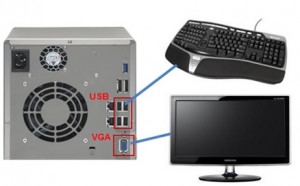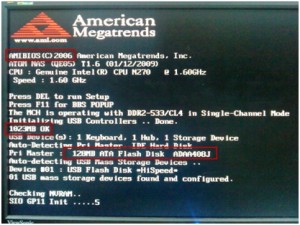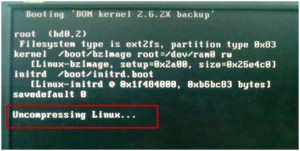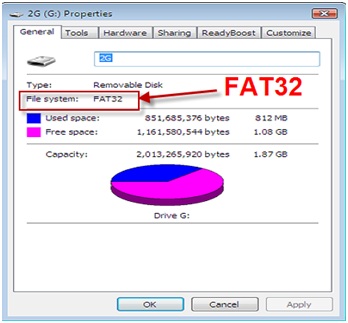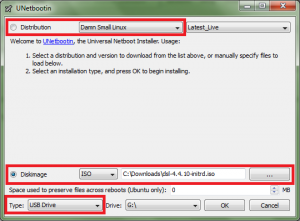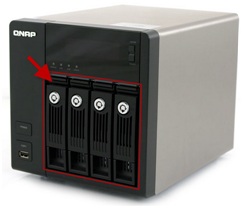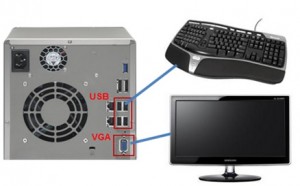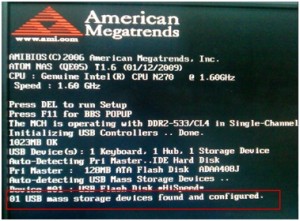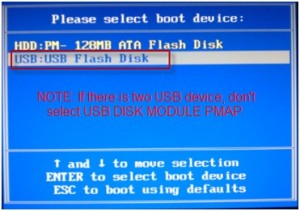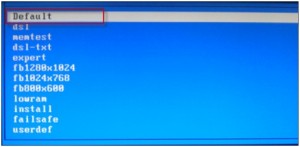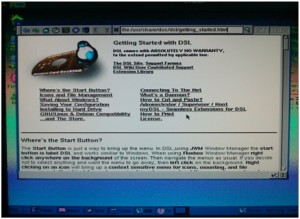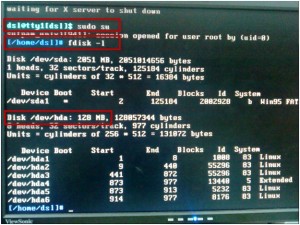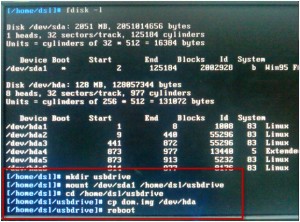Firmware Reflash for x86 Based (Ts- 509 / 809 / x39/ x59) Models
Firmware Recovery Guide for x86-based NAS
Applied QNAP NAS models
TS-239 Pro, TS-239 Pro II, TS-239 Pro II+, TS-439 Pro, TS-439 Pro II, TS-439 Pro II+, TS-259 Pro, TS-259 Pro+, TS-459 Pro, TS-459 Pro+, TS-459 Pro II, TS-459U, TS-459U+, TS-559 Pro, TS-559 Pro+, TS-559 Pro II, TS-639 Pro, TS-659 Pro, TS-659 Pro+, TS-659 Pro II, TS-859 Pro, TS-859 Pro+, TS-859U, TS-859U+, TS-509, TS-809, TS-809U, SS-439, SS-839
When to use the firmware recovery guide
This firmware recovery guide is intended for users who encounter system startup failure due to incomplete or unsuccessful firmware update caused by power outage or network disconnection during the process. To verify if this guide applies to your NAS, follow the steps below:
1. Power off the NAS.
2. Remove all the hard disks.
3. Connect the NAS with a VGA monitor and a USB keyboard.
4. Power on the NAS
“AMI BIOS …”–> the following screen shows the BIOS can startup correctly
“1023MB OK” –> DRAM has been detected (DRAM size is depend on NAS model)
“128MB ATA Flash Disk ADAA408J” –> DOM has been detected (DOM size is depend on NAS model)
If the BIOS cannot be started or any component cannot be detected correctly, like DRAM, DOM, you need to contact with local distributor and send back the NAS for repair. If the NAS system can be startup correctly after HDD removed, you will need to replace the HDD as the startup failed issue should be caused by HDD.
5. When the screen will show “Uncompressing Linux…” .
At this stage, the system on the DOM is starting to boot up. However, if the system is corrupted, some error message might occur on the screen during the startup process. You can try to recover the system on the DOM by following steps.
6. To recover the system on the DOM, you need follow the step A and step B.
A. Create a USB boot disk
B. Use the USB boot disk to refresh the system on the DOM.
Instructions for NAS Recovery
A. How to create a USB boot disk.
1. Download the unetbootin utility and iso file from the link below:
http://unetbootin.sourceforge.net/ – e.g. please select “Download for windows” if you are using Windows platform on your PC.
http://distro.ibiblio.org/damnsmall/current/dsl-4.4.10-initrd.iso
2. Plug a USB flash drive to your PC. The USB flash drive should be 1GB or 2GB. Please format the USB flash drive as FAT32.
3. Install and run the unetbootin utility on your PC. Then select “Damn Small Linux” for Distribution.
4. Select “Diskimage”, and choose the iso file downloaded in step 1.
5. Make sure the Type is on “USB Drive”, and click “OK” to install the boot system on the USB drive.
6. Click “Exit” after process completed.
7. Check your NAs model and download the system full image from the link below.
8. Copy system image file to the root folder of USB flash drive and rename the file to “dom.img”.
Download System Full Image
========================================================
- TS-239 Pro
- TS-239Pro II
- TS-239 Pro II+
- TS-259 Pro, TS-259 Pro+
- TS-269 Pro, TS-269L
- TS-439 Pro
- TS-439 Pro II
- TS-439 Pro II+
- TS-439U
- TS-459 Pro, TS-459 Pro+, TS-459 Pro II
- TS-459U, TS-459U+
- TS-469 Pro, TS-469L
- TS-469U-RP
- TS-509 Pro
- TS-559 Pro, TS-559 Pro+, TS-559 Pro II
- TS-569 Pro
- TS-639 Pro
- TS-659 Pro, TS-659 Pro+, TS-659 Pro II
- TS-669 Pro
- TS-809 Pro
- TS-809U
- TS-859 Pro, TS-859 Pro+
- TS-859U, TS-859U+
- TS-869 Pro
- TS-869U-RP
- TS-1269U-RP
- SS-439
- SS-839
========================================================
B. How to use USB boot disk to refresh the DOM for x86 based NAS
1. Power off the NAS.
2. Remove all the hard disks.
3. Connect the NAS with a VGA monitor, USB keyboard, and the bootable USB disk.
4. Power on the NAS and press F11 key repeatedly.
5. Select the USB flash drive as your boot device. If you didn’t the menu and the system continues to process with the command line mode, please reboot the NAS and repeat the step 4.
[NOTE]: If there are two USB devices, don’t select “USB DISK MODULE PMAP”.
6. On the following menu, select Default for monitor setting. Then, press <SPACE> to continue.
7. After boot up completely, you should see the following window.
8. Press Ctrl+Alt+Del to enter command line.
9. Input the following command:
# sudo su
# fdisk –l
/dev/sda is your flash drive.
/dev/sdb or /dev/hda is the DOM drive. The size should be 128 MB or 512 MB depend on the NAS model..
10. Then, input the following command:
# mkdir usbdrive
# mount /dev/sda1 /home/dsl/usbdrive
# cd /home/dsl/usbdrive
11. Input the following command:
# cp dom.img /dev/sdb
“/dev/sdb” or “/dev/hda” is the DOM drive.
“dom.img” is your firmware name.
/dev/sdb or /dev/hda is the drive name of your dom. (depend on NAS model)
12. Reboot your NAS.
# reboot
13. After the system has been recovered, the NAS should boot up correctly and can be found by QNAP Finder.
14. When the firmware version is on 1.x.x, it is factory test firmware. No HDD can be detected with this firmware. Need to update the firmware to official firmware first.
For TS-239, TS-439, TS-439U, TS-509, TS-639, TS-809, TS-809U, SS-439 and SS-839, please follow the procedures on the following link to update the firmware to 3.5.0.
http://wiki.qnap.com/wiki/NAS_Firmware_Update_When_No_HDD(s)_Installed
For other x-86 based NAS, please download the firmware 3.4.x from QNAP website and use QNAP Finder to update the firmware.
15. After firmware update by QNAP Finder, you can then plug the HDD(s) back to the NAS. After boot up,
- If the HDD(s) have been used on the NAS before, the firmware on the NAS and the HDDs may be inconsistent, you need to update the firmware again.
- If the HDD(s) is brand new, you can then start the initialization procedures.


